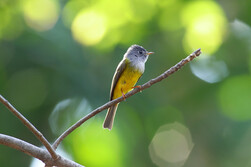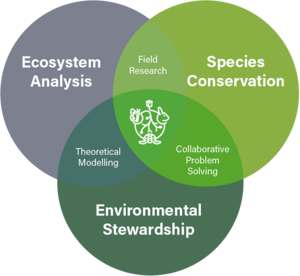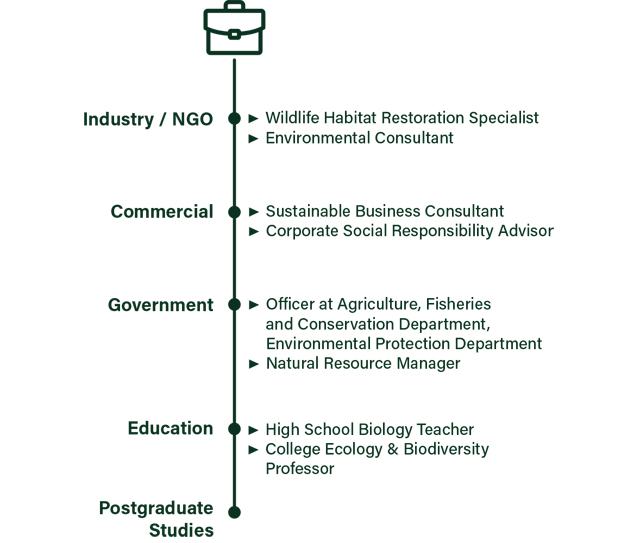 Ecology & Biodiversity encompasses the intricate relationships between organisms and their environments, the diversity of species across the globe, and the critical challenges and strategies for conserving biodiversity. By unravelling complex ecosystem interactions, it supports sustainable tewardship and contributes to our planet’s health and balance.
Ecology & Biodiversity encompasses the intricate relationships between organisms and their environments, the diversity of species across the globe, and the critical challenges and strategies for conserving biodiversity. By unravelling complex ecosystem interactions, it supports sustainable tewardship and contributes to our planet’s health and balance.
Studying Ecology & Biodiversity
By studying ecological processes, biodiversity patterns, and sustainable management strategies, students will acquire various skills, including critical reasoning, quantitative analysis, and the ability to collaborate across disciplines. The knowledge and expertise gained in this Major enable students to address and mitigate environmental challenges effectively.
Major Highlights
- Core courses covering three key areas, with special reference to Hong Kong and Asian aquatic and terrestrial flora and fauna:
- Evolution and diversity of life forms on Earth and their habitual diversity
- Interactions of organisms with each other and their environments
- Threats and approaches for biodiversity conservation and sustainable managemen
- Senior students are further exposed to applied or specialised topics of different ecosystems via fieldwork experience and the use of quantitative and experimental methods

Curricula
To cater for students’ different needs, two curricula in Ecology & Biodiversity are offered:
| Major in Ecology & Biodiversity (96 credits) |
| > | Allows students to explore a multitude of subjects, fostering their growth in both academic and professional areas |
| Major in Ecology & Biodiversity (Intensive) (144 credits) |
> > | Provides thorough training for students with a strong interest in the field and aiming for specialised careers Accreditation: The Intensive Major has been accredited by the Royal Society of Biology (RSB), UK |
Career Prospects
As the urgency to safeguard the natural environment and biological resources intensifies, Ecology & Biodiversity graduates take on a vital role in shaping policy formulation, decision-making processes, and finding innovative solutions to environmental issues. The versatility of their acquired knowledge and skills enables them to excel in various career paths, including education, research, and conservation, among others.
Hear from Our Student

Portia Yeuk Hang WONG
BSc graduate (major in Ecology & Biodiversity)
Title
‘My undergraduate experience in Ecology and Biodiversity opened my eyes to the mechanisms of nature and ecosystems, which has made me feel much more in touch with Hong Kong as a city and the world as a whole. More importantly, learning about ecological theories in class and having the opportunity to apply different cutting-edge research methods in the lab helped me discover my passion for research and set my career path.’



